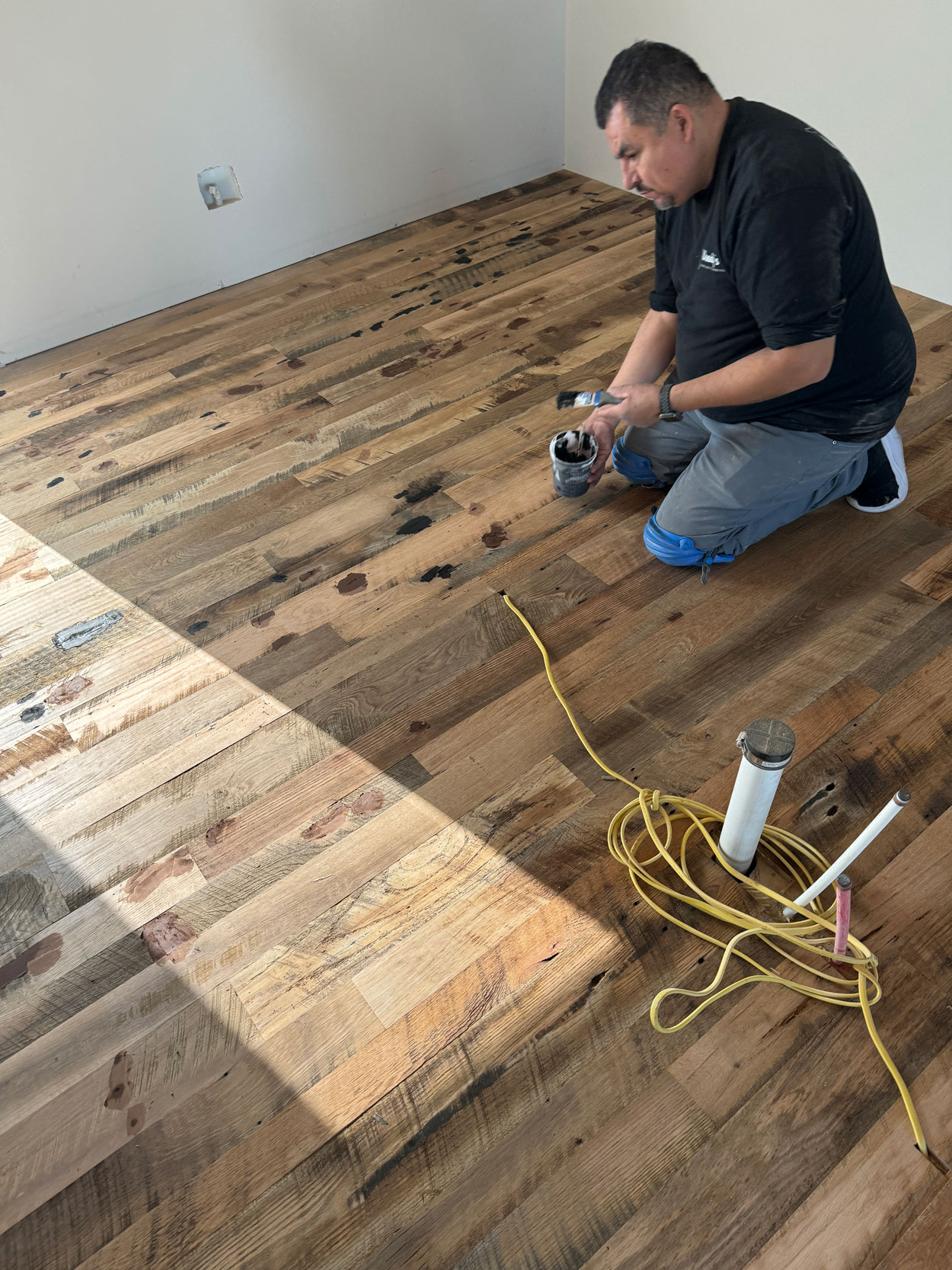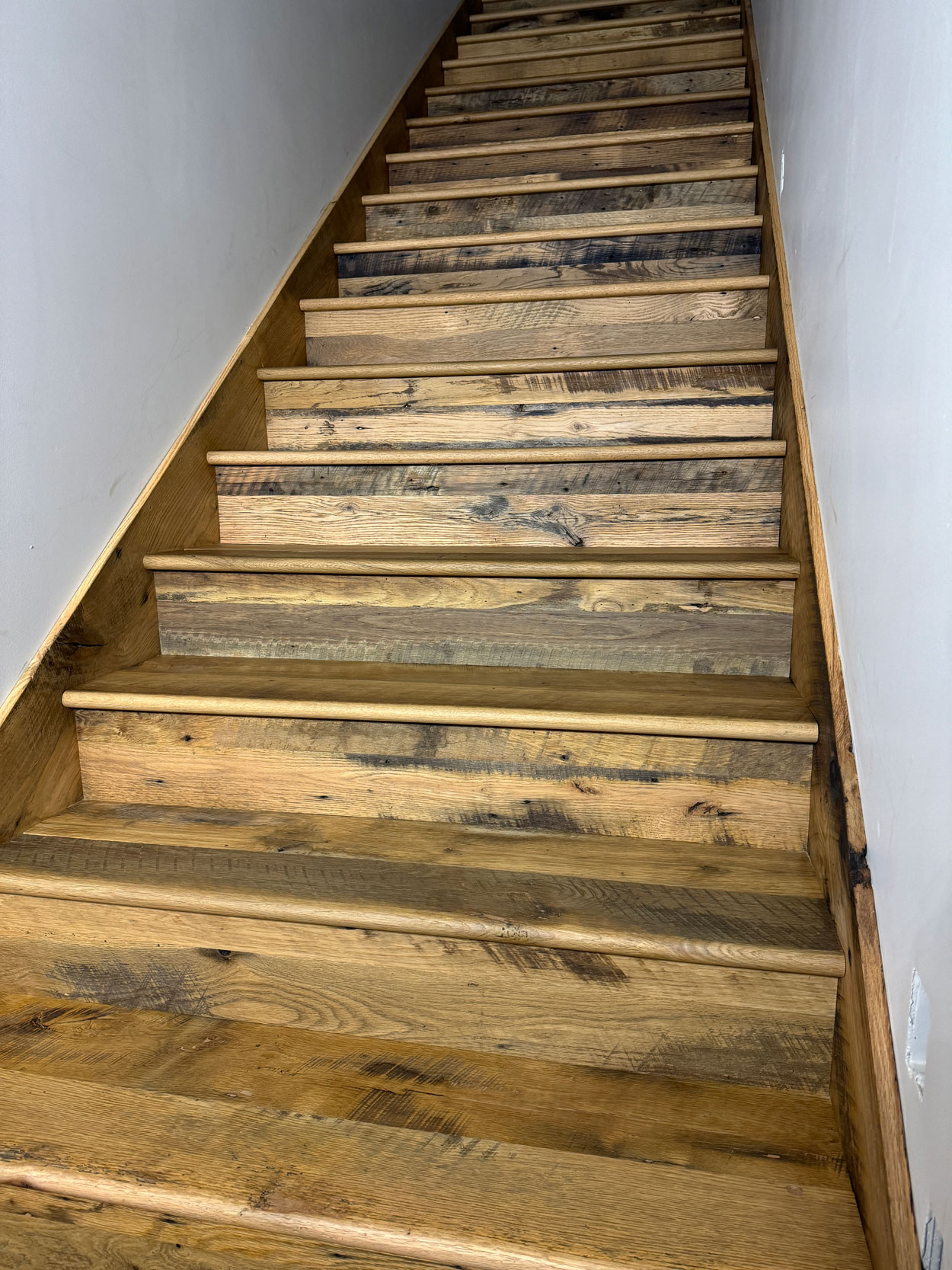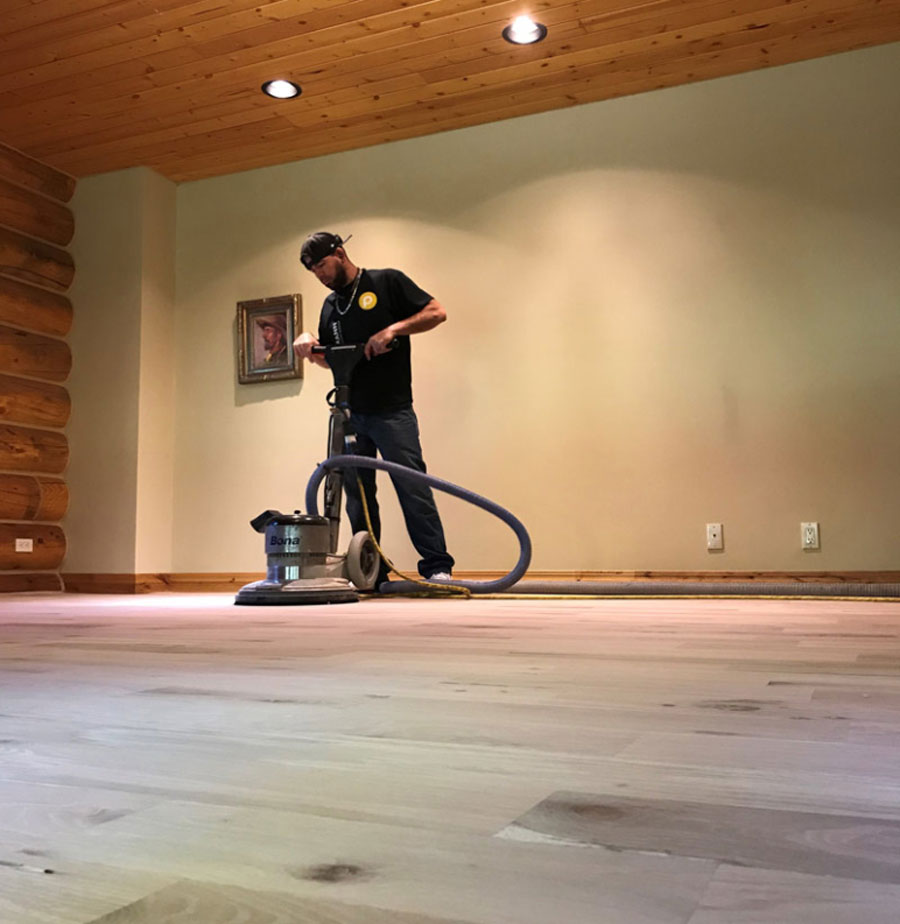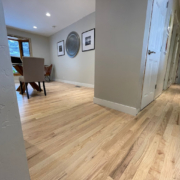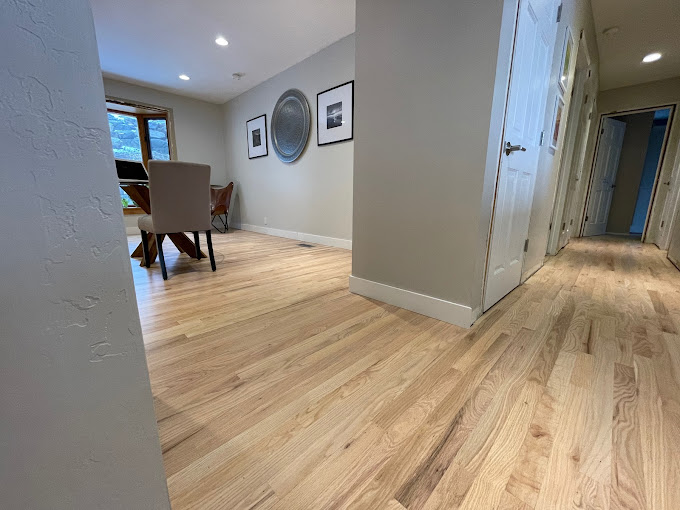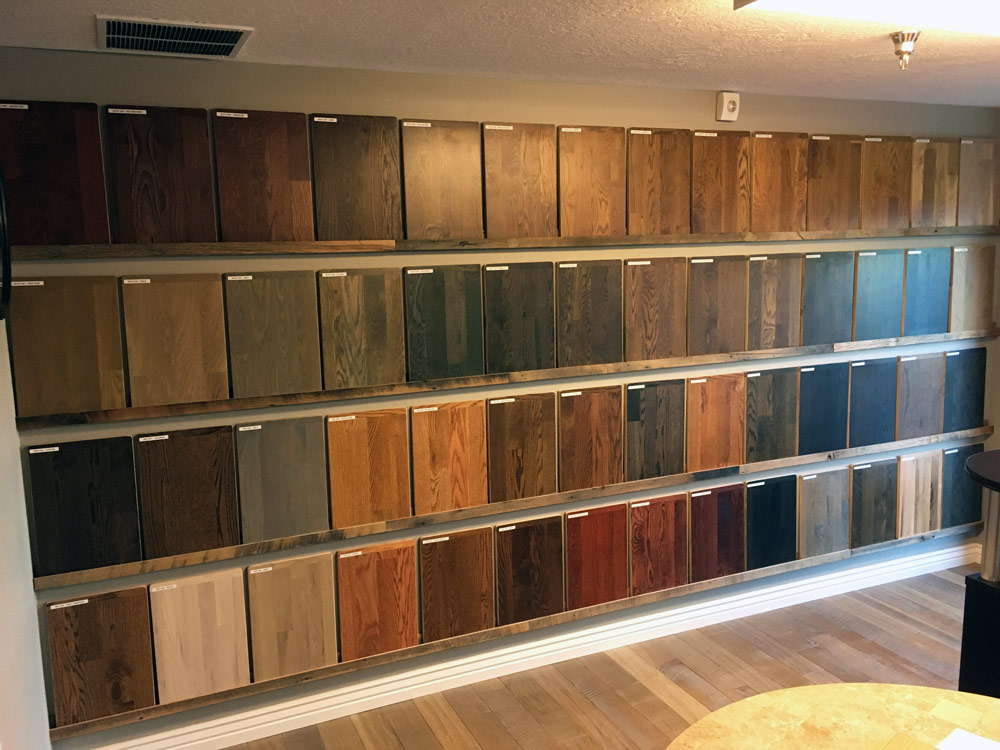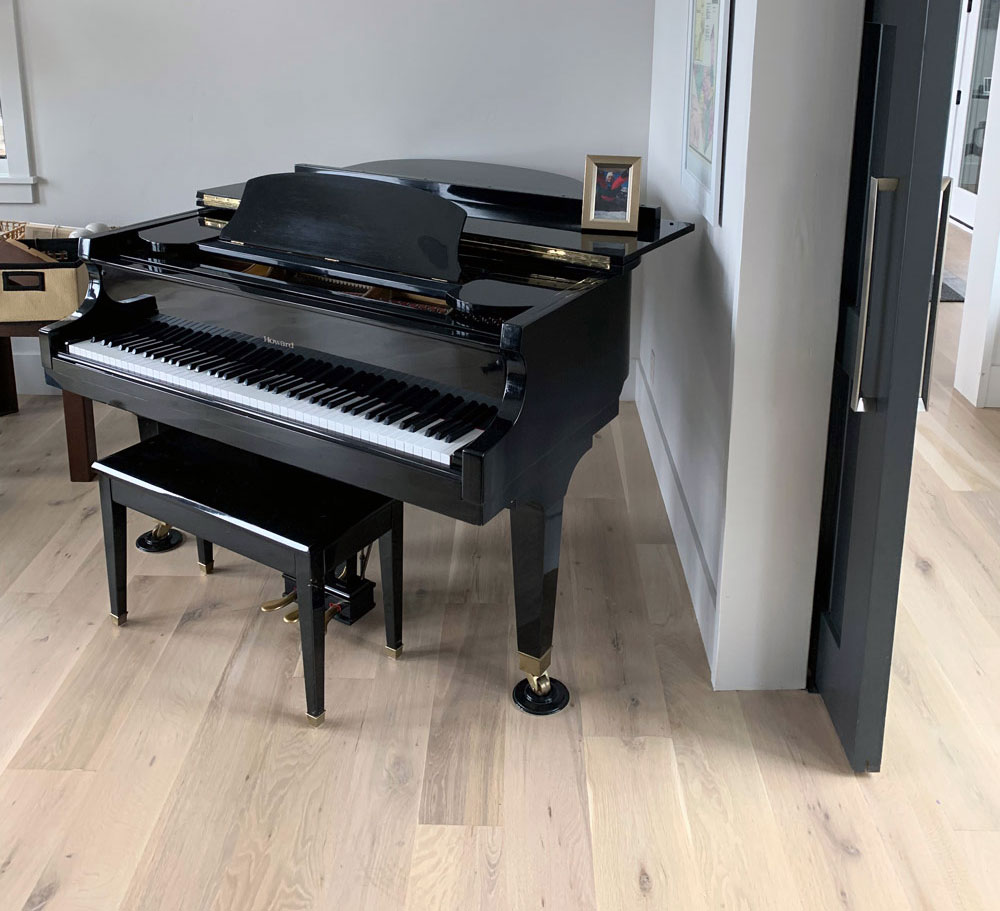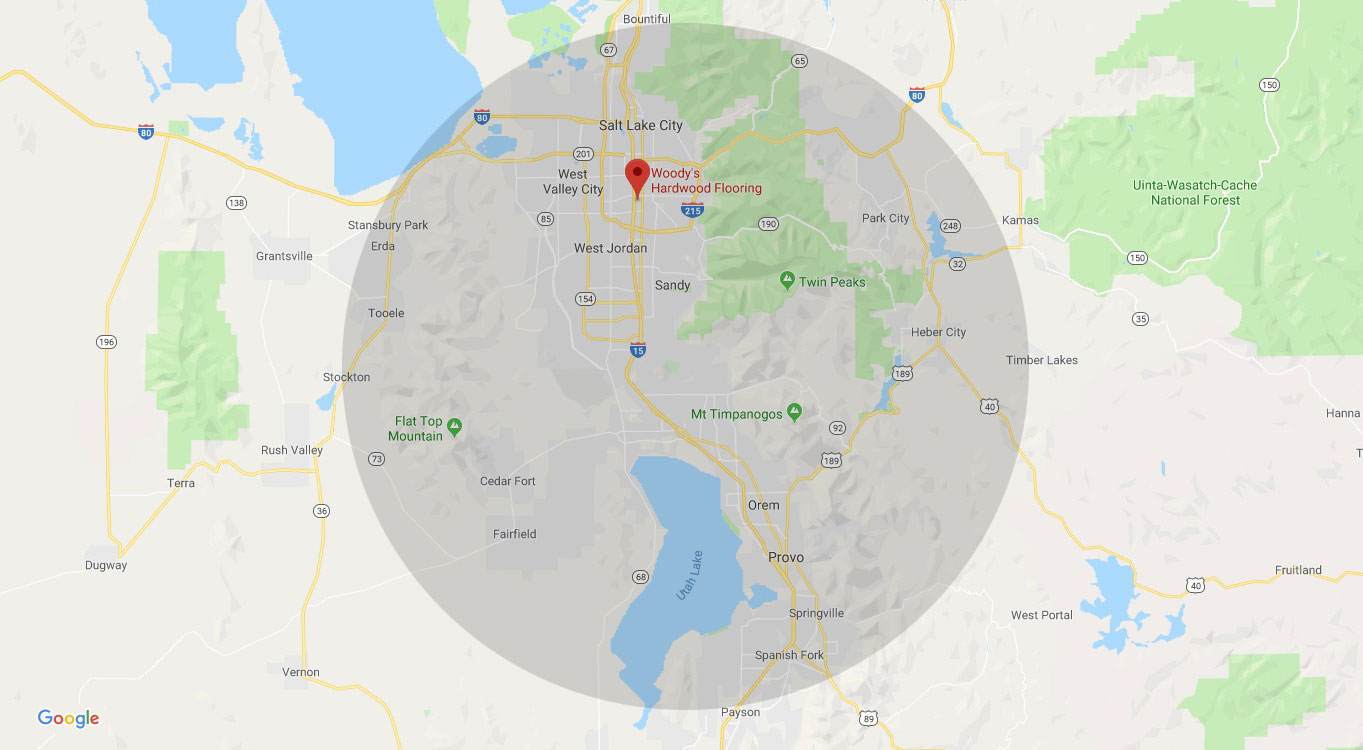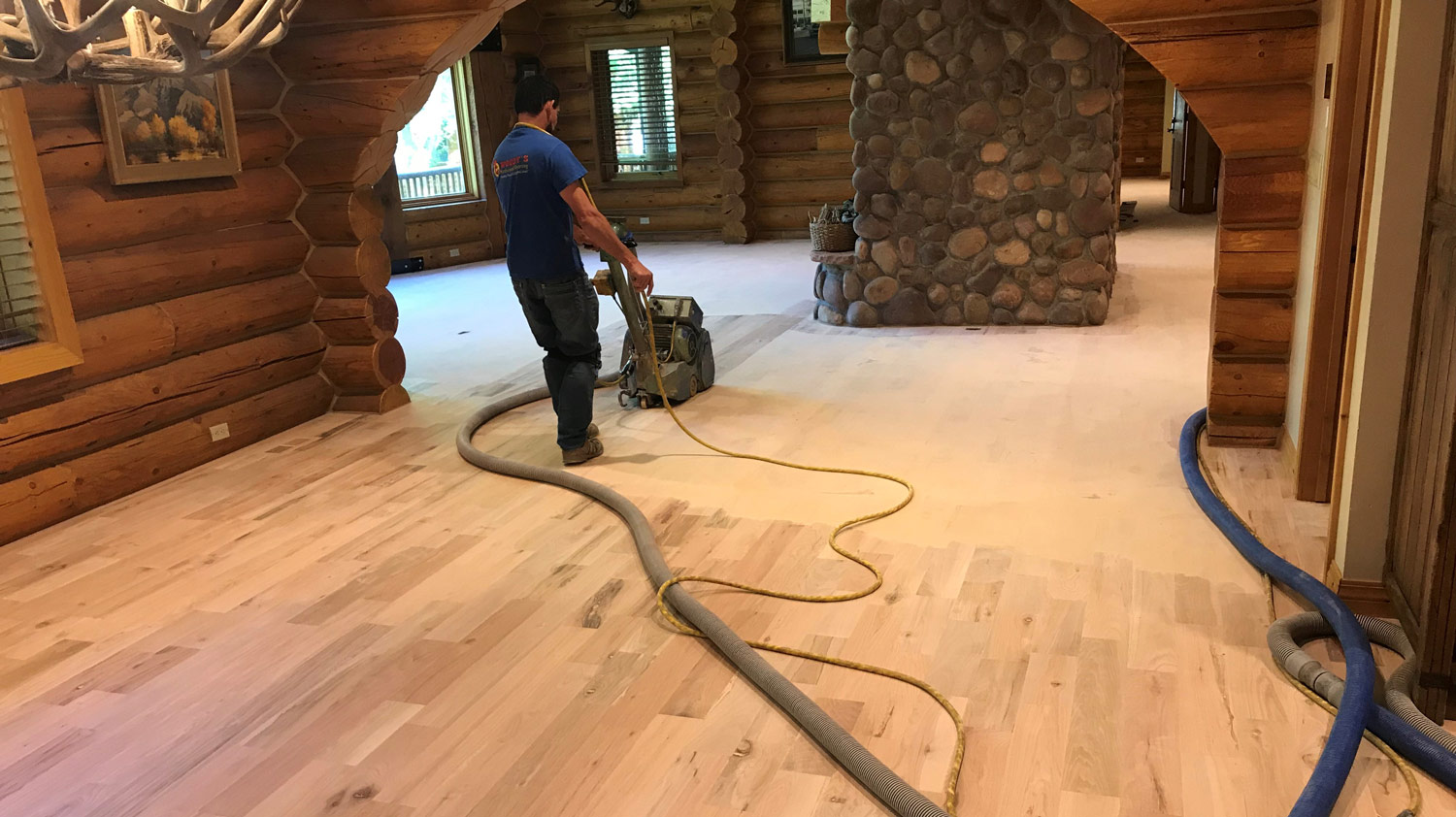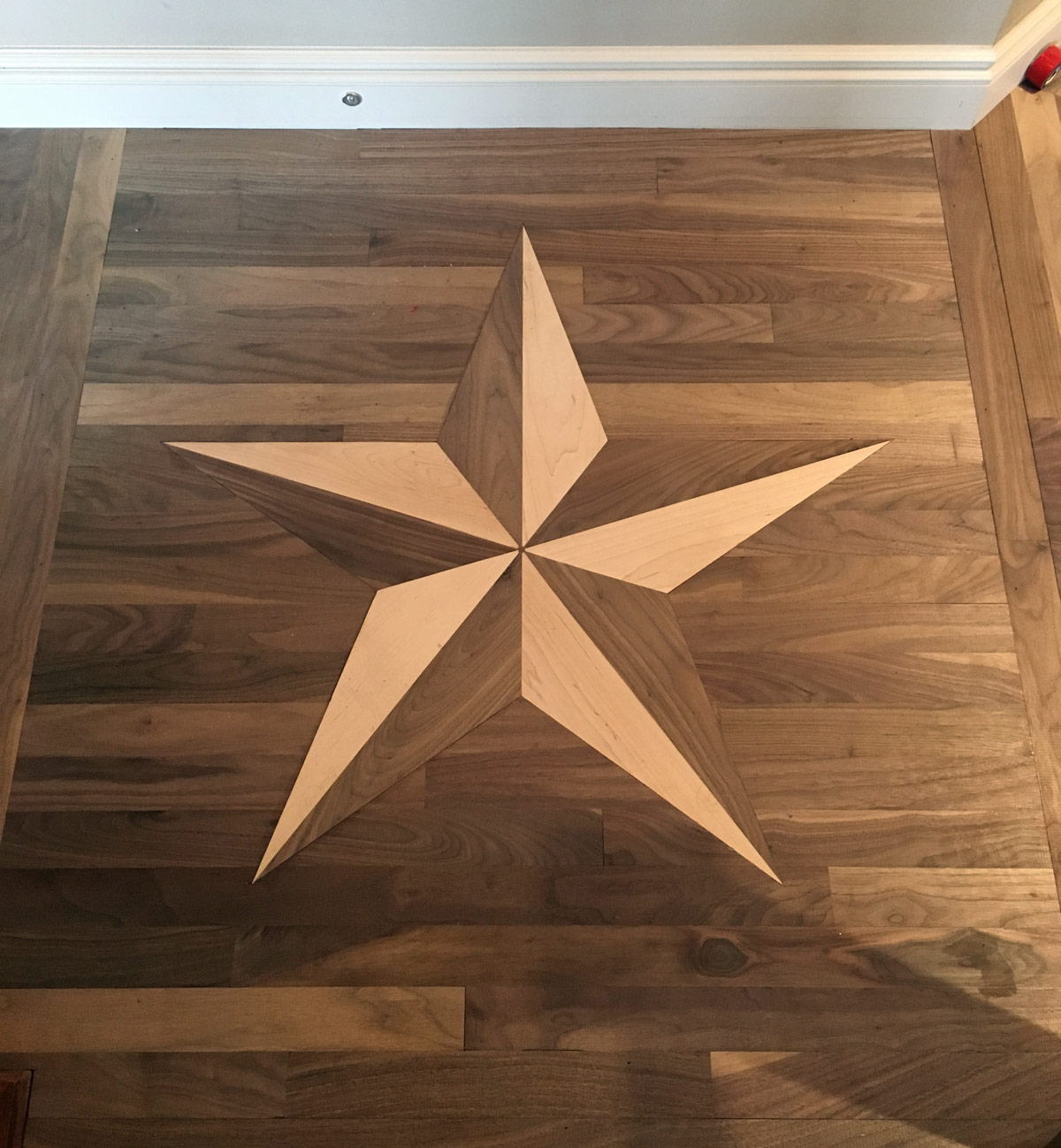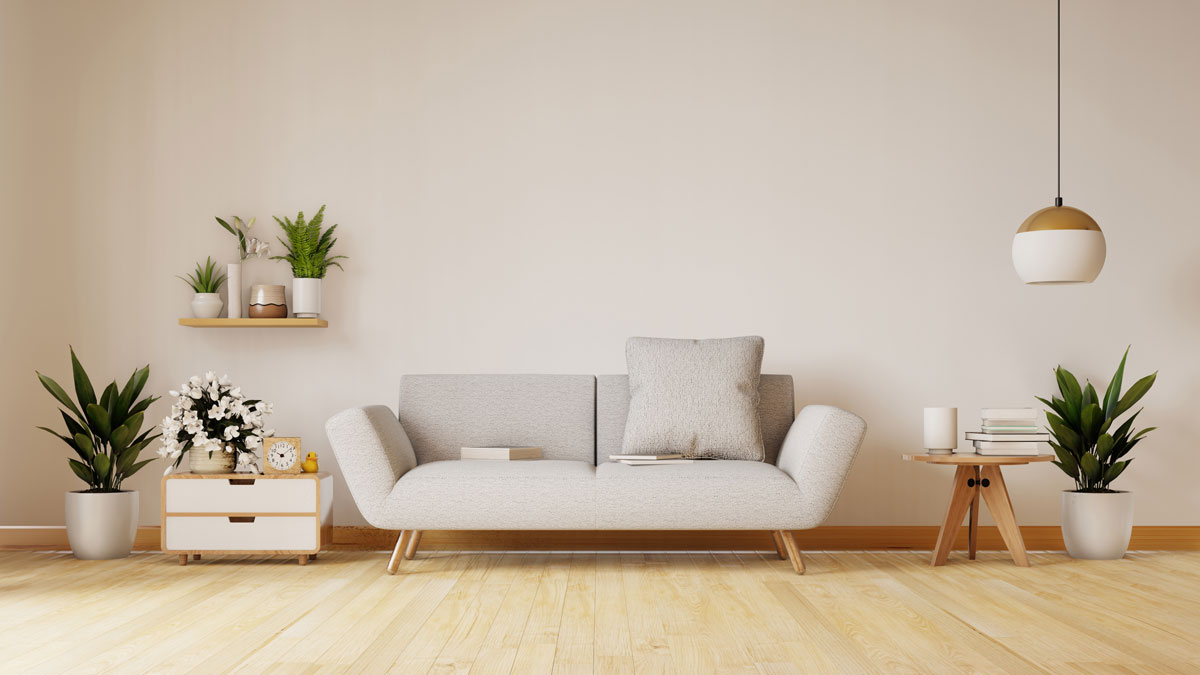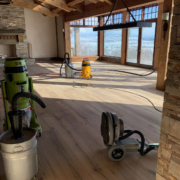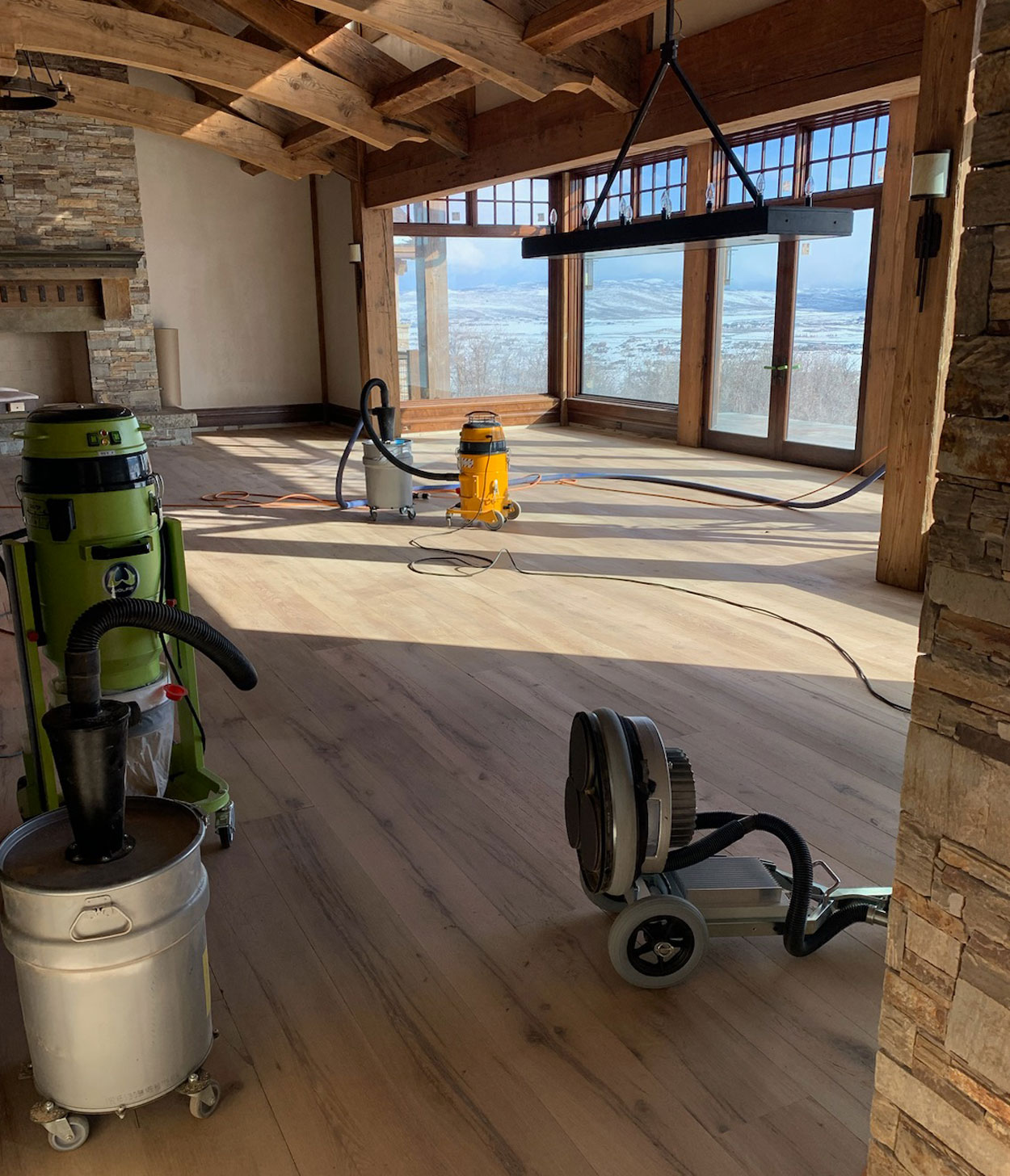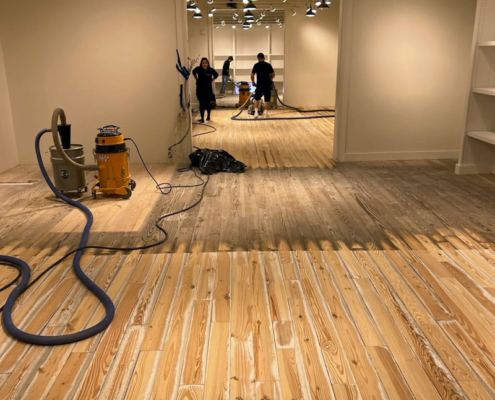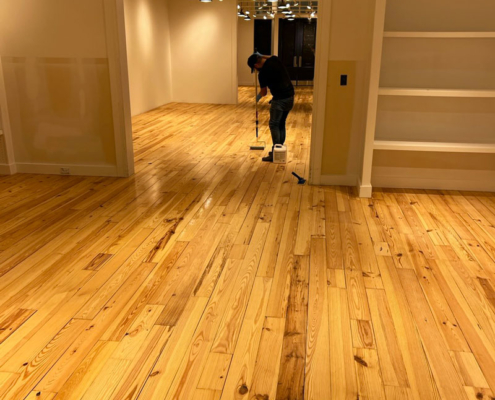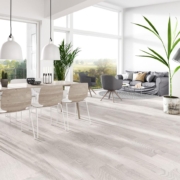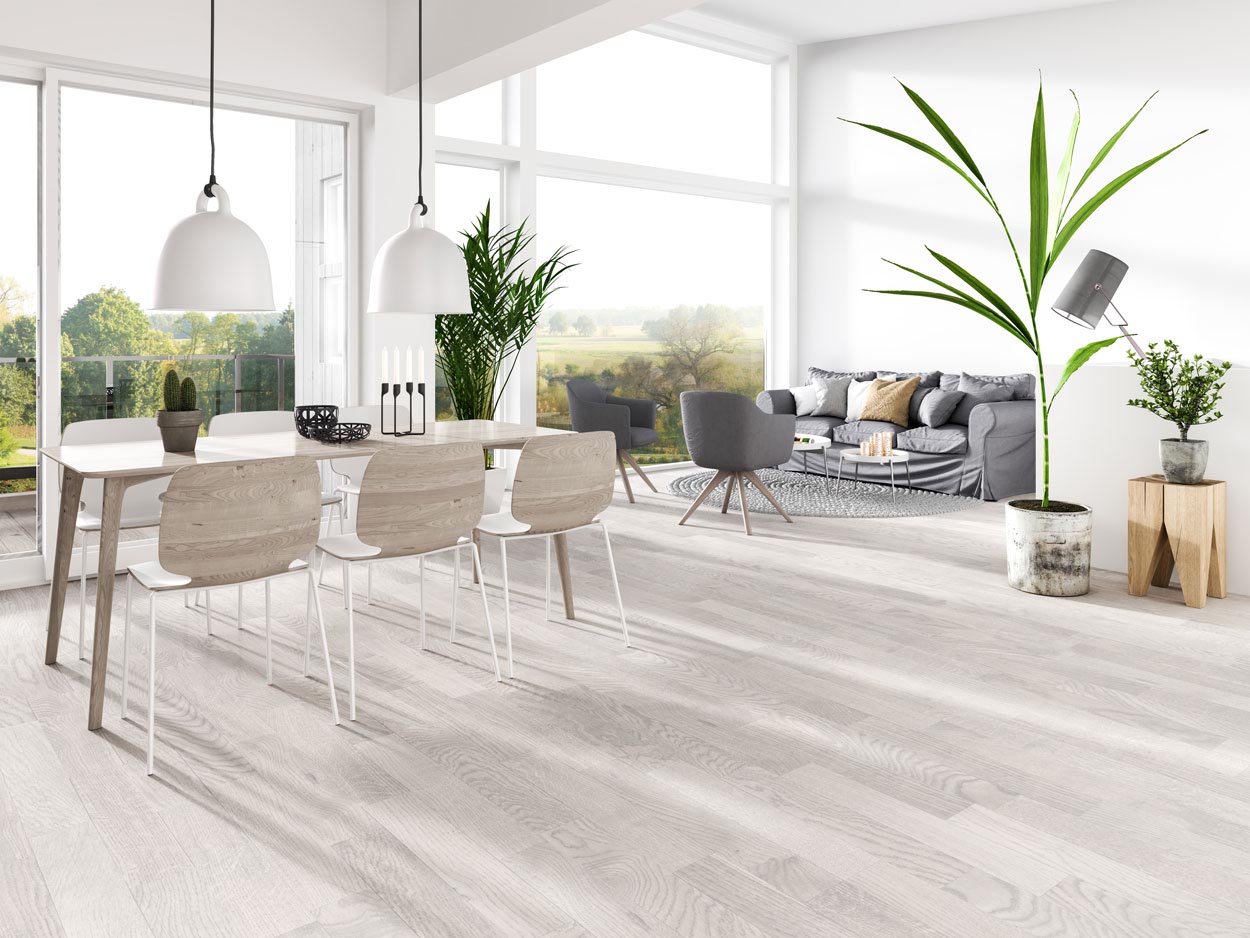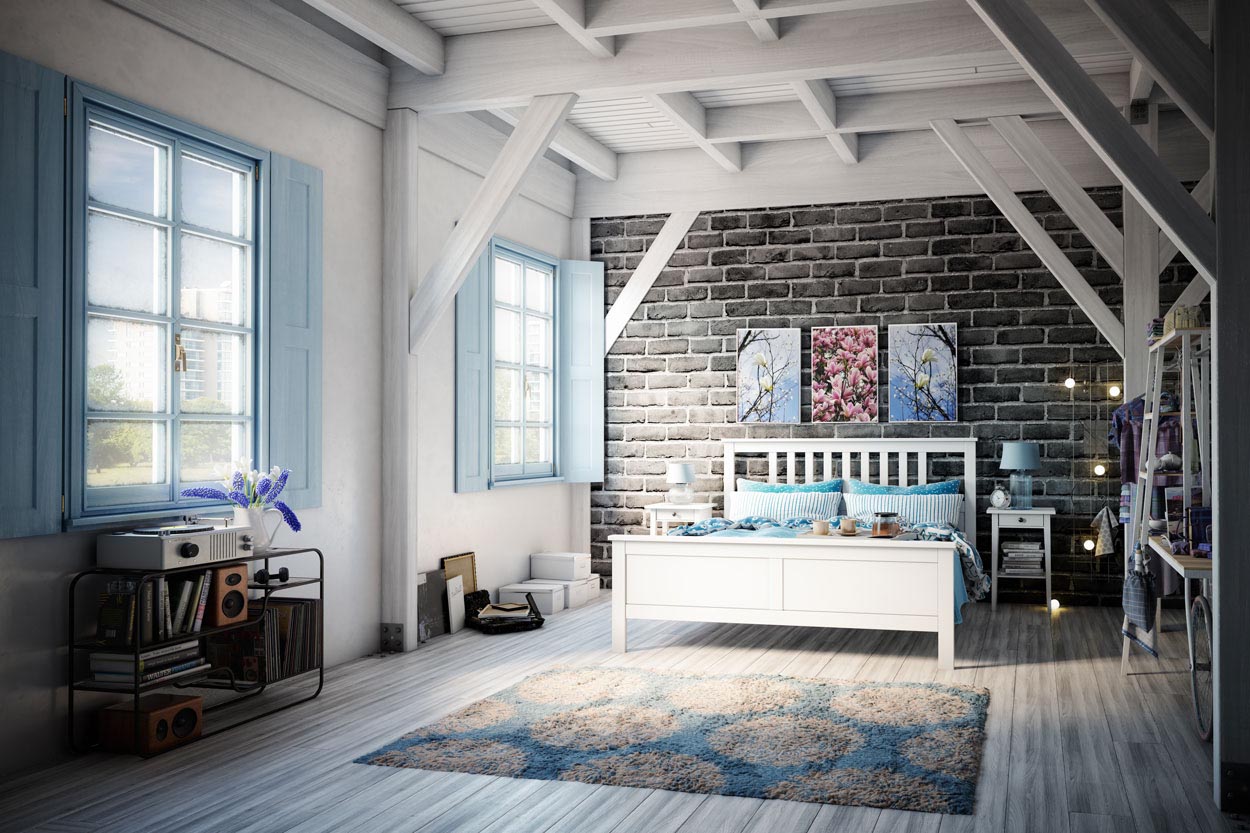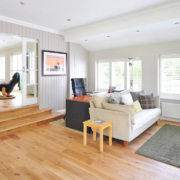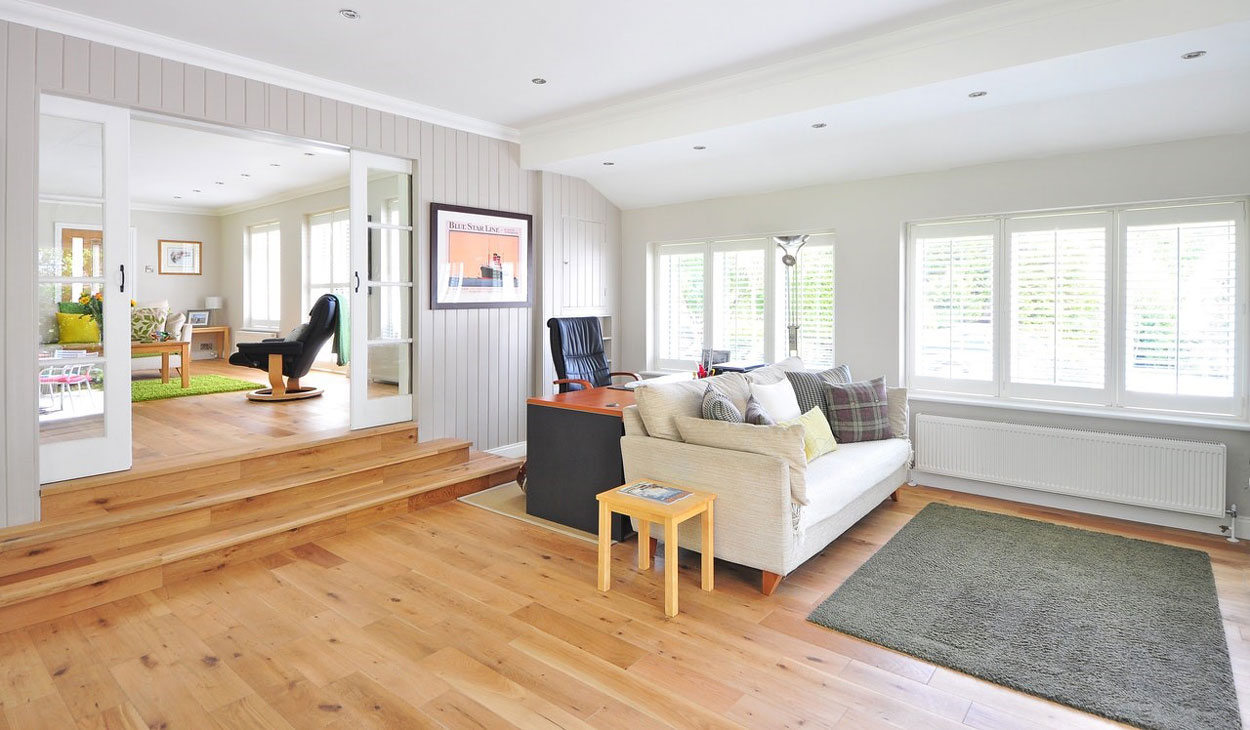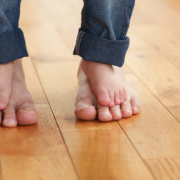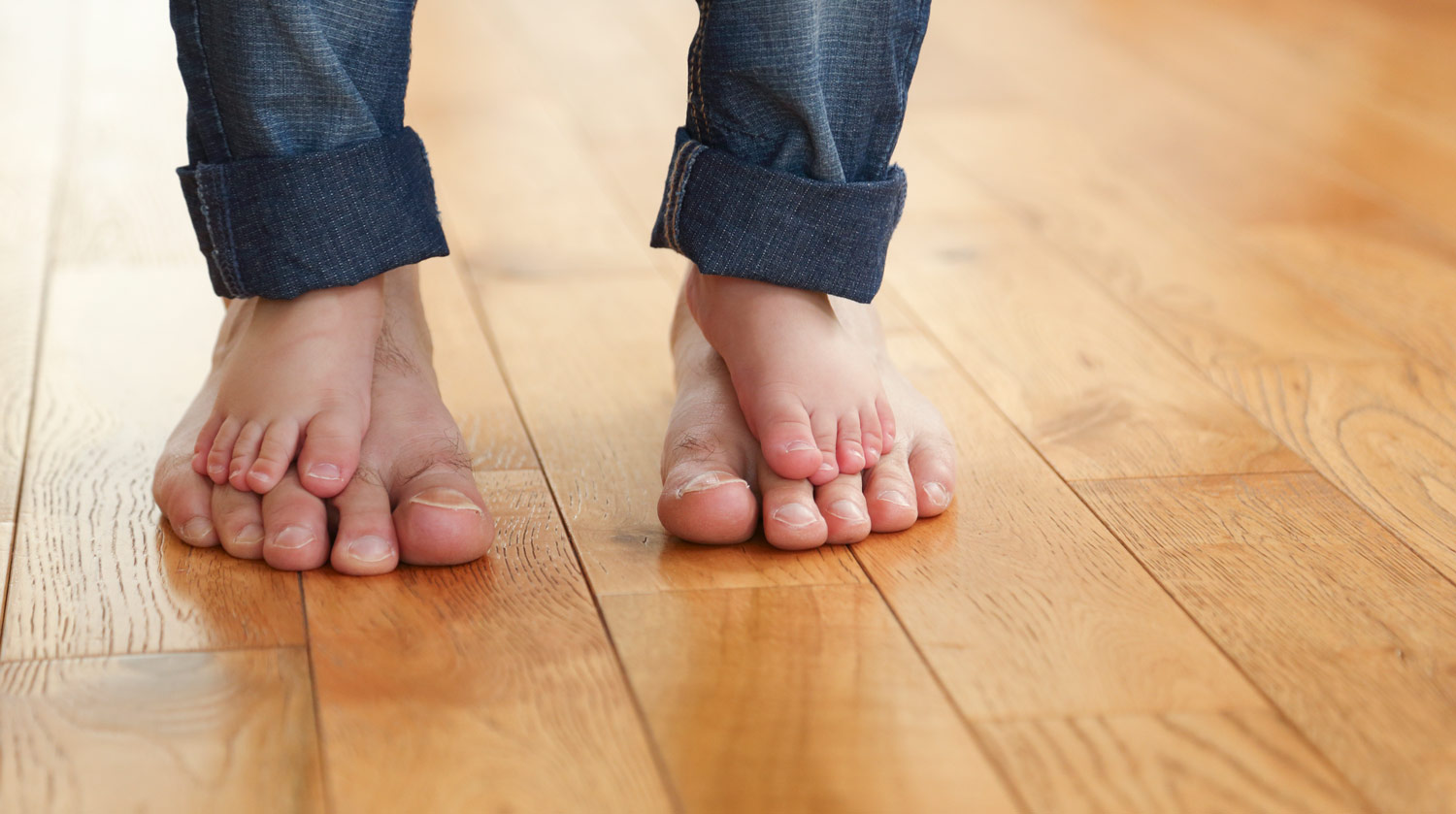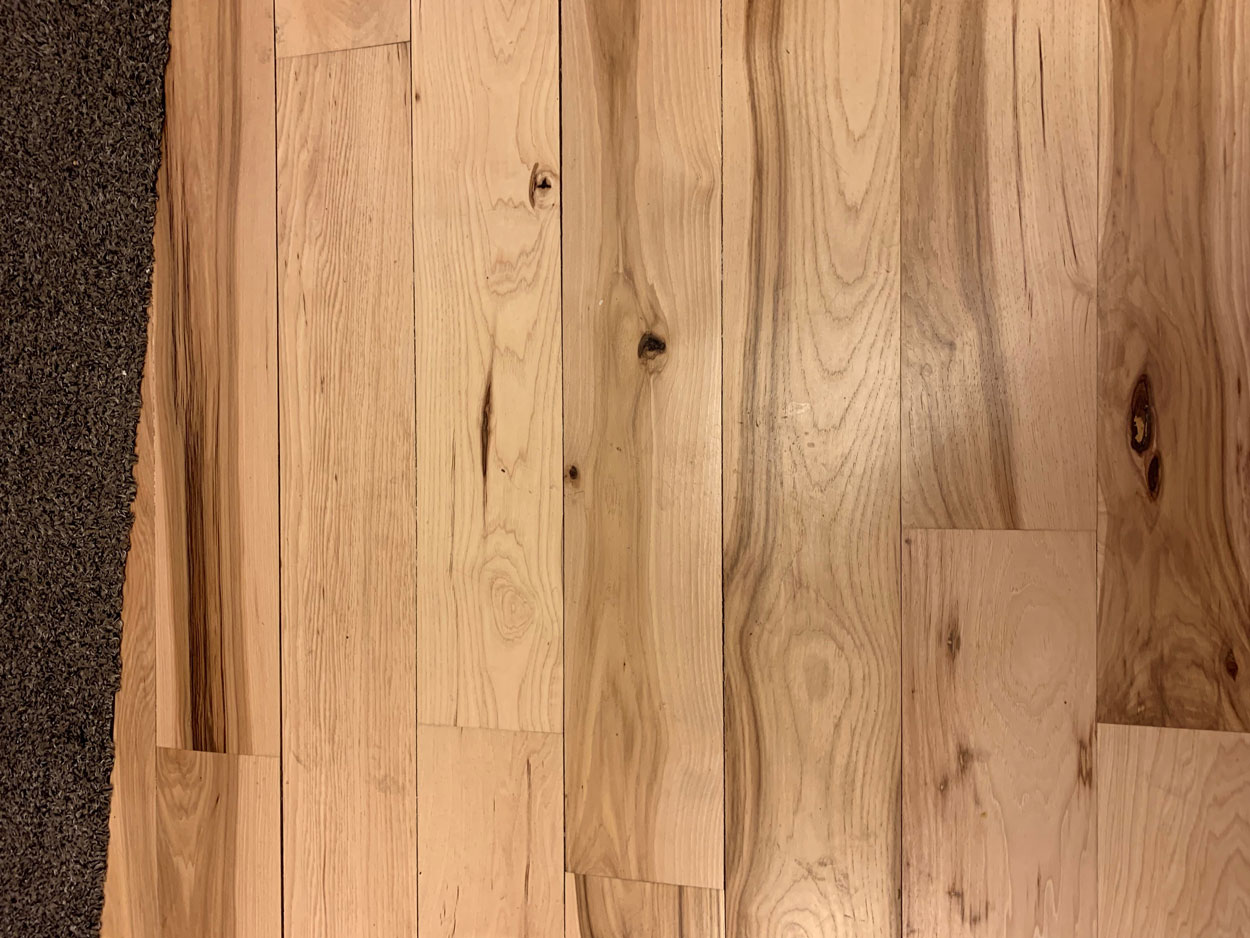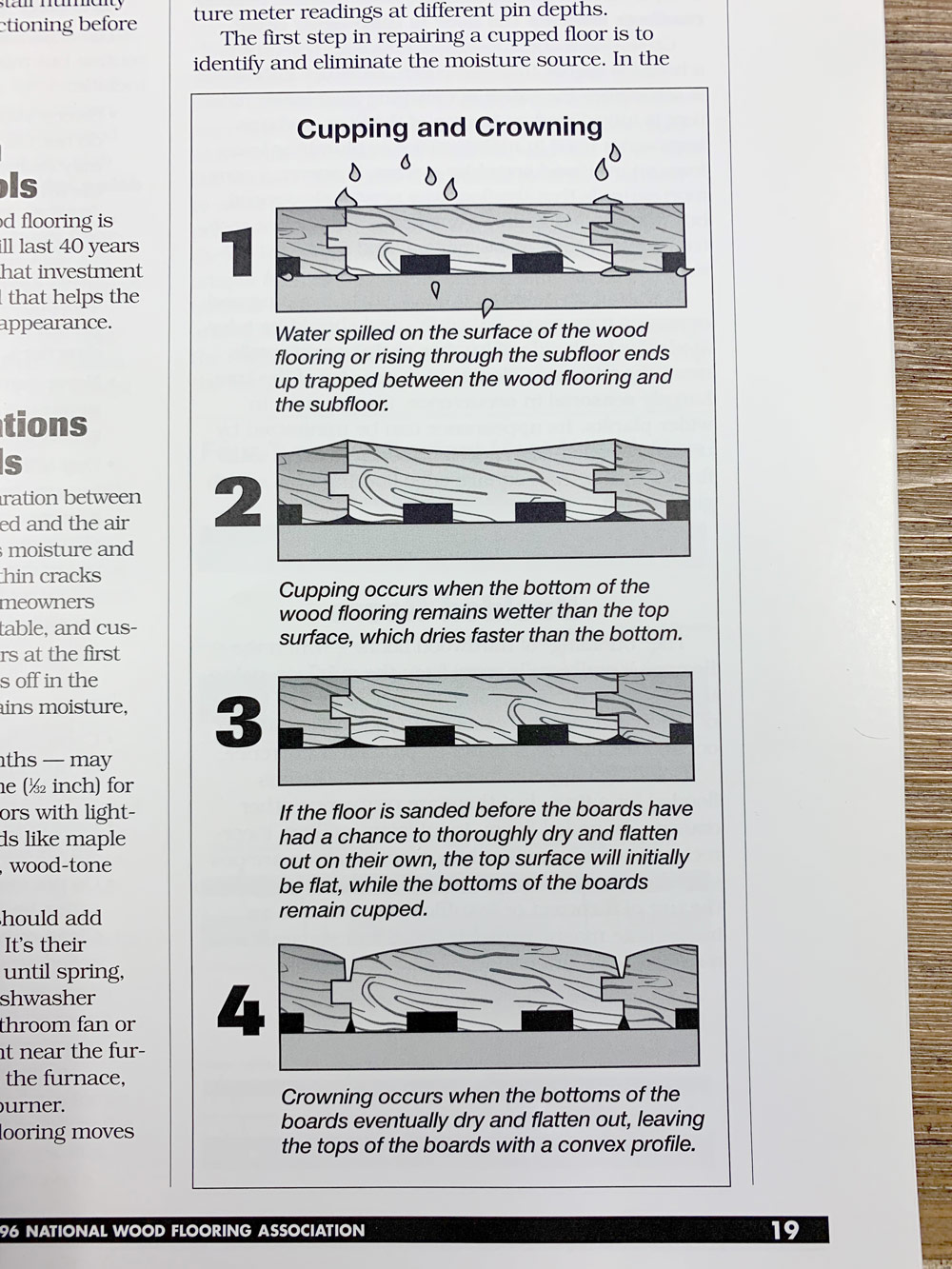Starting the New Year Clean: Why Dust Free Floor Sanding Is the Smart Choice for Utah Homes
Starting the New Year With a Cleaner, Healthier Home
January brings that familiar urge to reset, declutter, and breathe fresh life into our living spaces. For Utah homeowners, this often means tackling projects that have been postponed for months. Your hardwood floors, scuffed from holiday gatherings and showing years of wear, deserve attention. But here’s what most people don’t realize: traditional floor sanding creates a disaster that can linger in your home for weeks.
Starting the new year clean means more than organizing closets and donating old clothes. It means making smart choices about home improvement projects that won’t coat every surface in fine dust particles. Dust free floor sanding has transformed how Utah families approach hardwood refinishing, eliminating the mess that once made this project feel overwhelming.
The timing couldn’t be better. Winter keeps us indoors more than any other season, making indoor air quality genuinely important. Why spend January breathing in wood dust when modern technology offers a cleaner alternative? Utah homes, with their unique climate challenges and often closed-up winter environments, benefit enormously from sanding methods that capture dust at the source rather than spreading it throughout living spaces.
This isn’t about luxury or convenience alone. It’s about protecting your family’s health, preserving your belongings, and getting better results on your flooring investment.
Why Flooring Projects Make Sense at the Start of the Year
January and February represent the sweet spot for hardwood floor refinishing in Utah. Most flooring contractors experience their slowest season during these months, which translates to better scheduling flexibility and often more competitive pricing. You’re not competing with spring renovation rushes or summer move-in deadlines.
Consider the practical advantages:
- Contractors have more availability for your preferred timeline
- Indoor projects make sense when outdoor temperatures drop below freezing
- New Year motivation provides the push to finally tackle postponed improvements
- Completing the project now means enjoying beautiful floors for the entire year ahead
There’s also something psychologically satisfying about starting the year with a completed home improvement project. Rather than adding “refinish floors” to a list that grows throughout the year, you knock it out early and move forward with one less item weighing on your mind. The floors you’ve been meaning to address for years finally get the attention they deserve.
Winter’s lower humidity levels in Utah also create favorable conditions for floor finishing products to cure properly, though experienced contractors know how to manage these variables regardless of season.

What Is Dust Free Floor Sanding
Dust free floor sanding uses specialized equipment that captures wood particles at the point of contact between the sanding machine and your floor. Unlike traditional sanders that throw dust into the air, these systems connect to powerful vacuum units that pull debris directly into sealed containment bags before it ever becomes airborne.
The technology has existed for over two decades but has improved dramatically in recent years. Modern dust free systems capture approximately 99% of the dust generated during sanding, compared to traditional methods that release most particles into your home’s air. The remaining 1% represents particles so fine they would pass through any filtration system, but this minimal amount settles quickly and cleans up easily.
How Dust Free Sanding Differs From Traditional Methods
Traditional floor sanding relies on open-air machines that pulverize wood and send particles flying in every direction. Even with plastic sheeting over doorways and furniture covered in drop cloths, fine dust migrates throughout the house. It settles in HVAC ducts, coats kitchen surfaces, infiltrates closets, and creates a cleanup nightmare that extends far beyond the work area.
Key differences include:
- Traditional sanders operate independently while dust free systems integrate with extraction equipment
- Conventional methods require extensive prep work with plastic barriers that still fail to contain all dust
- Standard sanding typically means vacating your home during the project
- Traditional approaches require days of deep cleaning after completion
Dust free equipment connects directly to industrial vacuums through hoses attached at the sanding head. As the machine removes wood material, suction immediately pulls particles away. The result looks almost impossible if you’ve witnessed traditional sanding before: a clean work area where you can actually see the floor being transformed without clouds of dust obscuring the view.
The Hidden Problems With Traditional Floor Sanding
Most homeowners who’ve experienced traditional floor sanding describe it as a necessary evil. They wanted beautiful refinished floors but dreaded the process. Understanding why reveals just how significant the dust problem really is.
Airborne Dust and Indoor Air Quality Concerns
Wood dust isn’t just annoying. It’s a genuine health hazard that the EPA classifies as a respiratory irritant. Fine particles from floor sanding measure between 5 and 30 microns, small enough to penetrate deep into lung tissue. For context, a human hair measures about 70 microns in diameter.
Health impacts include:
- Aggravated asthma symptoms that can persist for weeks
- Allergic reactions including itchy eyes, runny nose, and skin irritation
- Respiratory inflammation in otherwise healthy individuals
- Potential long-term effects from repeated exposure
Traditional sanding releases these particles throughout your entire home. Even rooms far from the work area accumulate dust as particles travel through air circulation. Your HVAC system becomes a distribution network, spreading contamination to every room with a vent.
Cleanup Time and Disruption to Daily Life
The mess from traditional sanding extends the project timeline significantly. After the actual sanding and finishing work concludes, homeowners face days of intensive cleaning. Dust settles on every horizontal surface, works into fabric upholstery, and coats items inside closed cabinets and drawers.
Many families choose to leave their homes entirely during traditional sanding projects. This means hotel stays, disrupted routines, and the logistical challenge of relocating pets. Even after returning home, the cleanup process continues as dust gradually reveals itself in unexpected places for weeks afterward.

Why Dust Free Floor Sanding Is Ideal for Utah Homes
Utah’s specific environmental conditions make dust free sanding particularly valuable for local homeowners. The combination of climate factors and typical home construction creates scenarios where traditional sanding causes more problems than in other regions.
Addressing Utah’s Dry Climate and Seasonal Conditions
Utah’s famously dry air means dust particles stay suspended longer and travel farther than in humid climates. Moisture causes particles to clump together and settle faster, but our desert environment lacks this natural dust control mechanism. What might settle in hours in a coastal home can remain airborne for days in a Utah residence.
Winter exacerbates this issue:
- Homes remain sealed against cold temperatures, trapping dust inside
- Heating systems run continuously, circulating contaminated air
- Low humidity keeps particles suspended and mobile
- Static electricity from dry air causes dust to cling to surfaces
The dry climate also affects how dust interacts with your belongings. Static charges make particles adhere stubbornly to electronics, fabrics, and smooth surfaces. Cleaning becomes more difficult when dust won’t simply wipe away.
Reducing Allergens During Winter Months
Utah’s winter inversion events already compromise air quality for many residents. Adding wood dust to an indoor environment during these periods creates a double burden for respiratory systems. Families with allergies, asthma, or other sensitivities face genuine health risks from traditional sanding during winter months.
Dust free sanding allows these families to improve their homes without compromising their health. Children, elderly family members, and anyone with respiratory conditions can remain in the home during the project without exposure to harmful particles.

Health Benefits of a Dust Free Sanding Process
Beyond avoiding the acute irritation of breathing wood dust, choosing dust free methods provides lasting health advantages. The particles that traditional sanding spreads through your home don’t simply disappear after cleanup. They settle into carpet fibers, upholstery padding, and HVAC ductwork where they continue releasing into your air for months.
Consider these health benefits:
- No respiratory irritation during or after the project
- Elimination of allergen accumulation in soft furnishings
- Protection for family members with asthma or allergies
- Cleaner indoor air quality immediately following completion
- No contamination of HVAC systems that would require professional cleaning
The health argument alone justifies dust free methods for many Utah families. When you calculate the potential medical costs of aggravated respiratory conditions, the investment in cleaner sanding technology makes financial sense beyond just convenience.
Protecting Furniture, Walls, and HVAC Systems
Traditional floor sanding threatens more than just your lungs. The fine dust particles damage your home and belongings in ways that aren’t immediately obvious but become apparent over time.
Electronics suffer particularly from wood dust exposure. Particles work into ventilation openings on computers, televisions, and gaming systems. Once inside, they coat circuit boards and cooling fans, causing overheating and premature failure. A single traditional sanding project can shorten the lifespan of expensive electronics throughout your home.
Your HVAC system faces similar risks:
- Filters become clogged rapidly, reducing efficiency
- Dust accumulates on evaporator coils, affecting cooling capacity
- Ductwork collects particles that release slowly over months
- Blower motors work harder and wear out faster
Furniture, artwork, and decorative items require extensive protection during traditional sanding. Even covered items often show dust residue that requires careful cleaning. Upholstered pieces may need professional cleaning to remove embedded particles. Dust free sanding eliminates these concerns entirely.
Faster Project Timelines With Less Mess
Time matters when your home is disrupted by a renovation project. Dust free sanding significantly reduces total project duration by eliminating the extensive preparation and cleanup phases that traditional methods require.
A typical dust free refinishing project follows a streamlined timeline:
- Minimal furniture moving since plastic barriers aren’t necessary
- Sanding begins immediately without extensive prep work
- Work areas remain clean throughout the process
- Finishing coats can be applied without waiting for dust to settle
- No post-project deep cleaning required
Traditional sanding might take three days for the actual floor work but add two days of preparation and three days of cleanup. Dust free methods often complete the same floor area in the three-day window alone. You regain use of your home faster and return to normal routines sooner.

Better Results for Hardwood Floor Refinishing
Dust free sanding isn’t just cleaner. It produces superior finished results. The same technology that captures particles before they become airborne also prevents them from settling back onto wet finish coats.
Achieving a Smoother, More Even Finish
When traditional sanding releases dust into the air, some particles inevitably land on freshly applied stain or polyurethane. These particles become trapped in the finish, creating a slightly rough texture and visible imperfections. Professional refinishers using traditional methods must work quickly and carefully to minimize this contamination, but some degree of dust inclusion is unavoidable.
Dust free environments allow finish coats to cure in clean conditions:
- Smoother final surface with no trapped particles
- Better adhesion between coats without contamination
- More consistent sheen across the entire floor
- Longer-lasting finish that resists wear better
- Professional-quality results that match showroom floors
The difference is visible and tactile. Run your hand across a floor finished in a dust free environment versus one done traditionally, and you’ll feel the distinction immediately.
When to Schedule Dust Free Floor Sanding
Timing your project strategically maximizes both convenience and results. While dust free sanding works year-round, certain periods offer advantages worth considering.
Early January through February provides the best combination of contractor availability and favorable conditions. Most Utah flooring professionals have openings during these months that fill quickly once spring arrives. Booking early in the year often means faster scheduling and potentially better pricing.
Consider these scheduling factors:
- Major holidays and family gatherings work better with completed floors
- Spring brings contractor demand surges and longer wait times
- Summer vacation periods might seem convenient but often book months ahead
- Fall represents another busy season as homeowners prepare for holidays
The ideal approach involves contacting contractors in December to schedule January or February work. This timing captures the slow-season advantages while ensuring your floors look beautiful for the rest of the year.
Choosing the Right Flooring Professionals in Utah
Not all contractors offering dust free sanding deliver equal results. The equipment and expertise required for truly dust free work represents a significant investment that some companies haven’t fully made. Asking the right questions helps identify professionals who will deliver the clean, high-quality results you expect.
Verify these qualifications before hiring:
- Specific equipment brands and models used for dust extraction
- Years of experience with dust free technology specifically
- References from recent Utah projects using dust free methods
- Clear explanation of their process and what to expect
- Willingness to show you their equipment before work begins
Legitimate dust free contractors welcome questions about their systems. They understand the technology differentiates them from competitors and take pride in explaining how it works. Vague answers or reluctance to discuss specifics suggests a company that may not have fully committed to dust free methods.
At Woody’s Hardwood Flooring, we pride ourselves on delivering superior hardwood flooring services across Utah. Our team of certified professionals is dedicated to providing high-quality floor sanding, installations, and repairs with a focus on customer satisfaction. Utilizing top-of-the-line materials and equipment, we ensure your investment in hardwood flooring adds beauty and value to your home. Choose Woody’s Hardwood Flooring for a dust-free, hassle-free experience that guarantees stunning results.
Your hardwood floors represent a significant investment in your home’s value and beauty. Protecting that investment while also protecting your family’s health makes dust free sanding the obvious choice for Utah homeowners ready to start the new year with refreshed, stunning floors. The technology exists to eliminate the mess and health risks of traditional methods. The only question is whether you’ll take advantage of it.
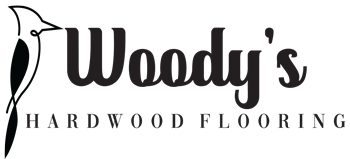





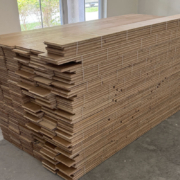
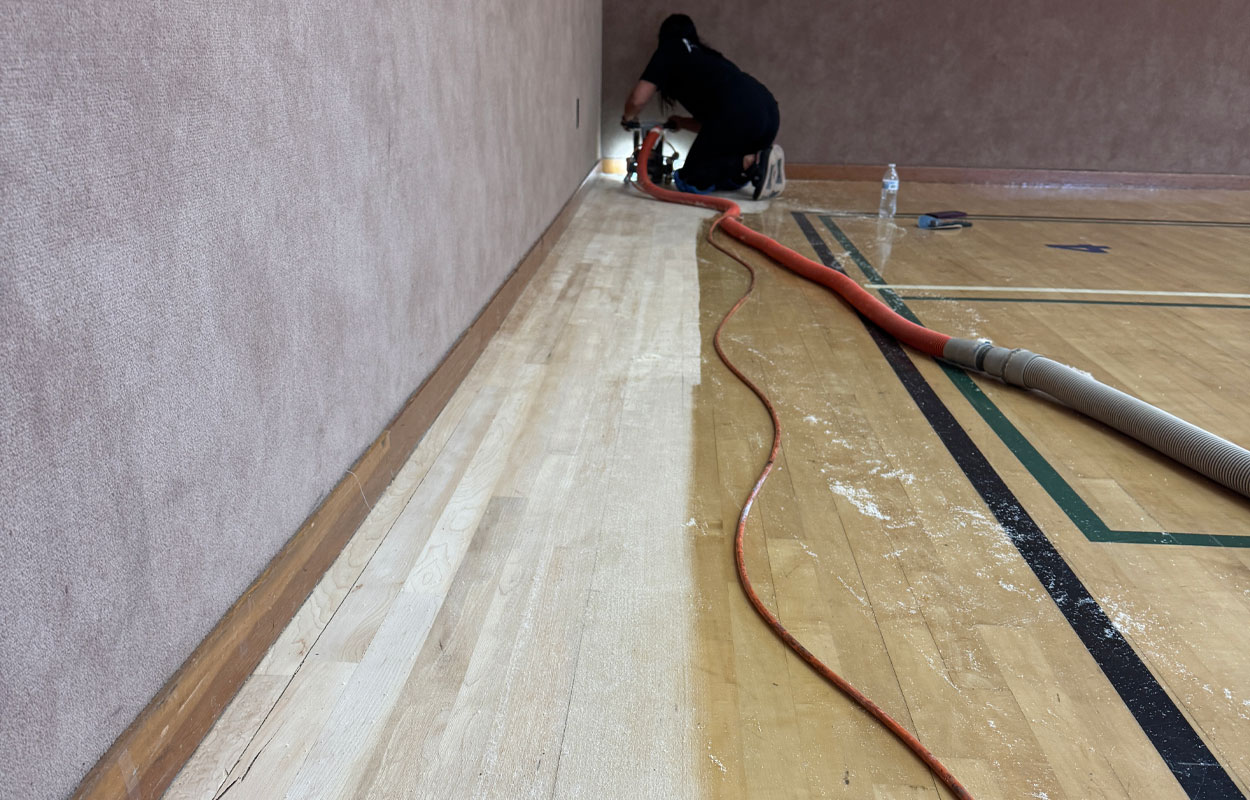
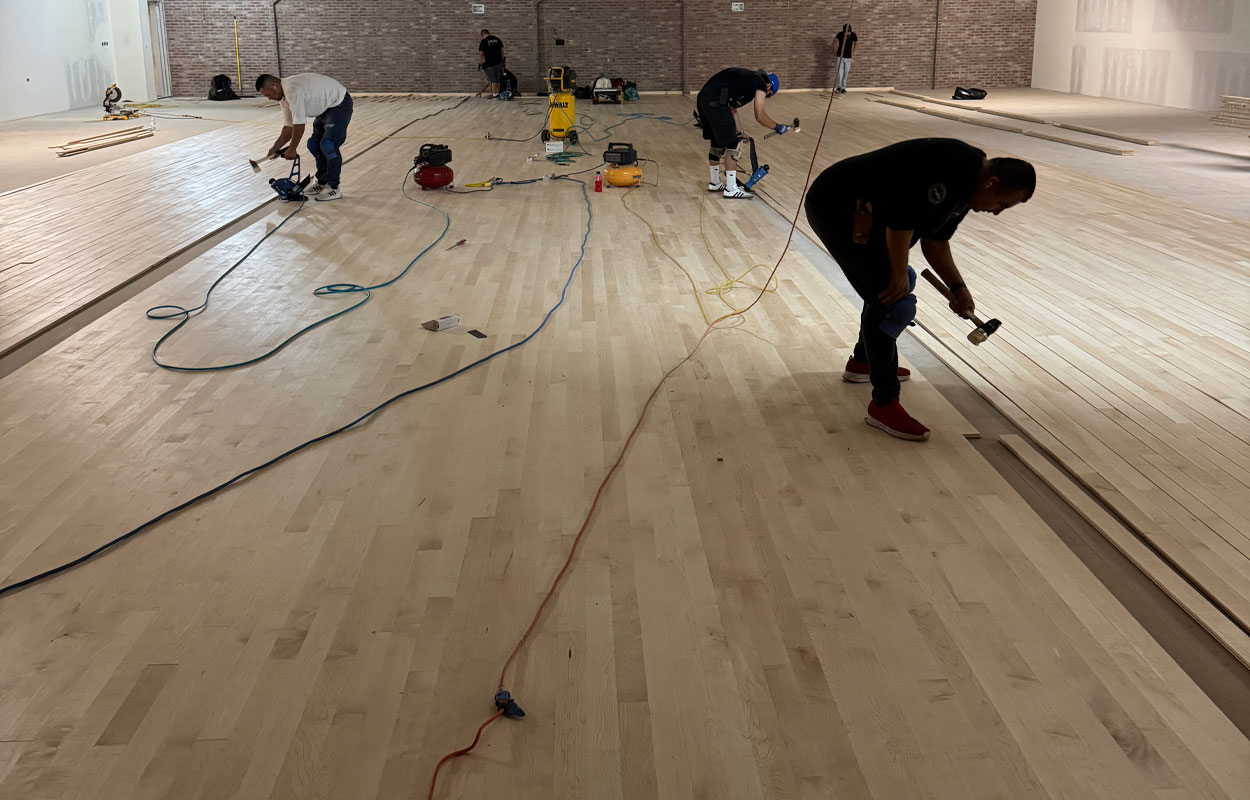


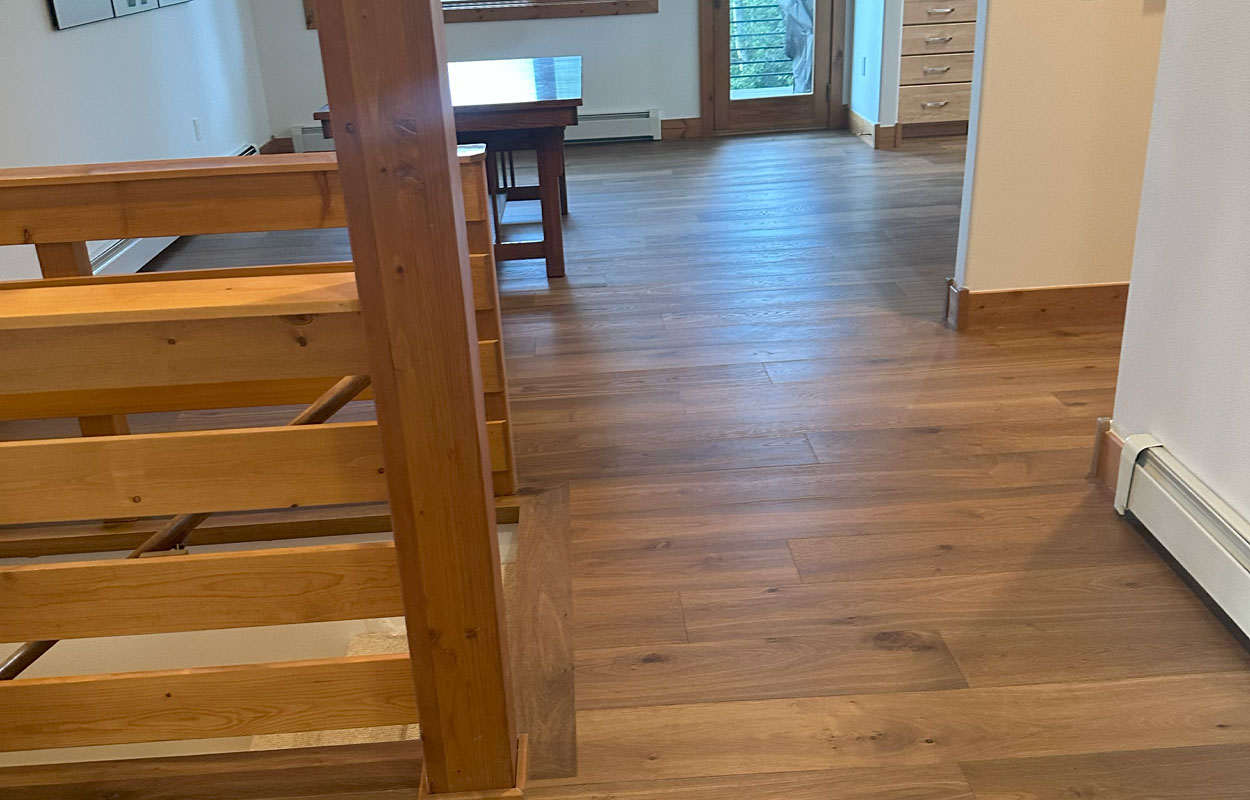


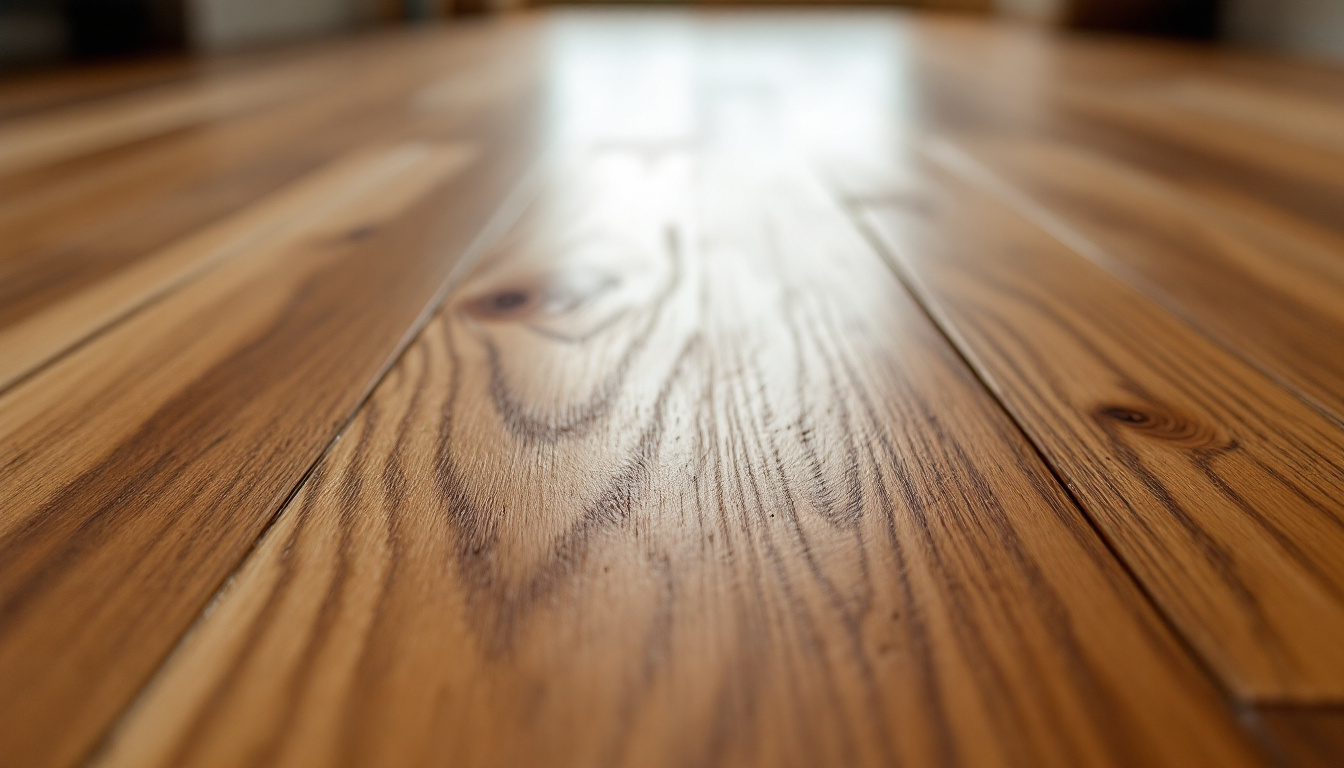
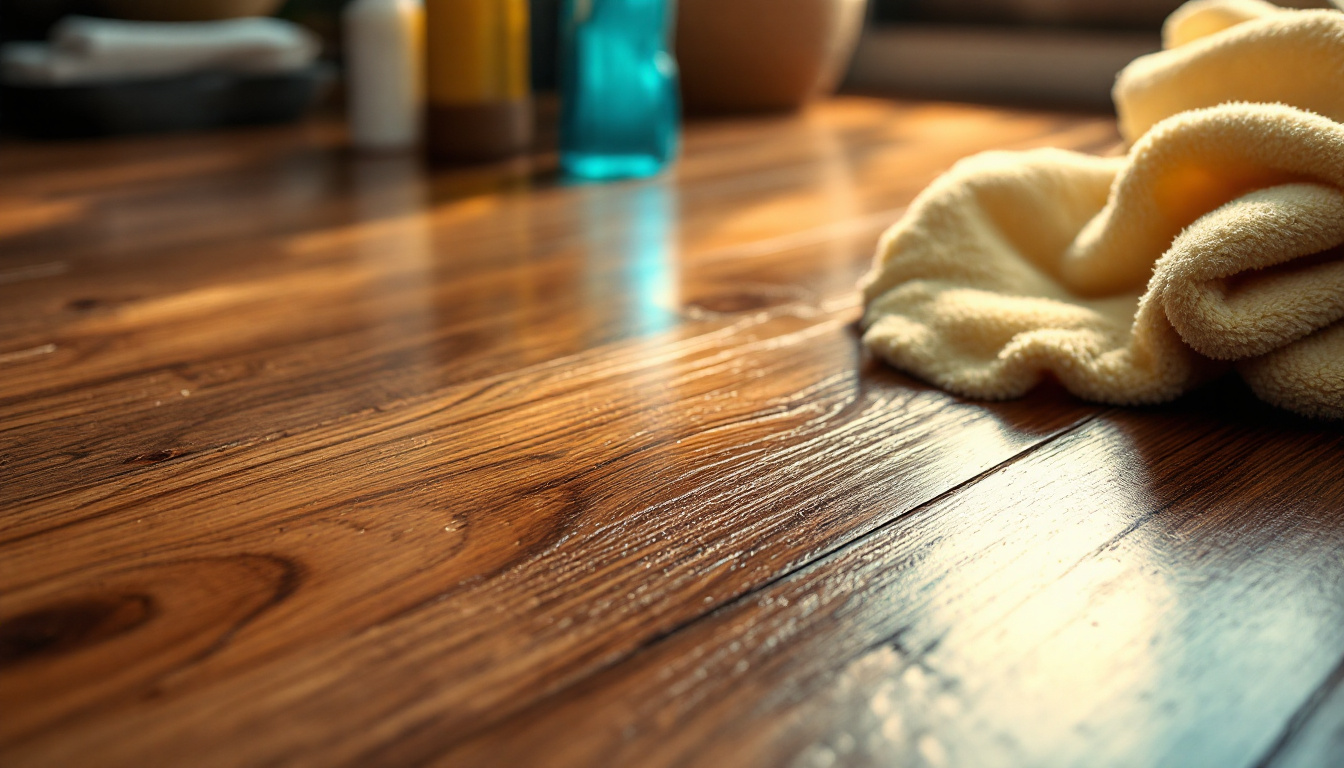
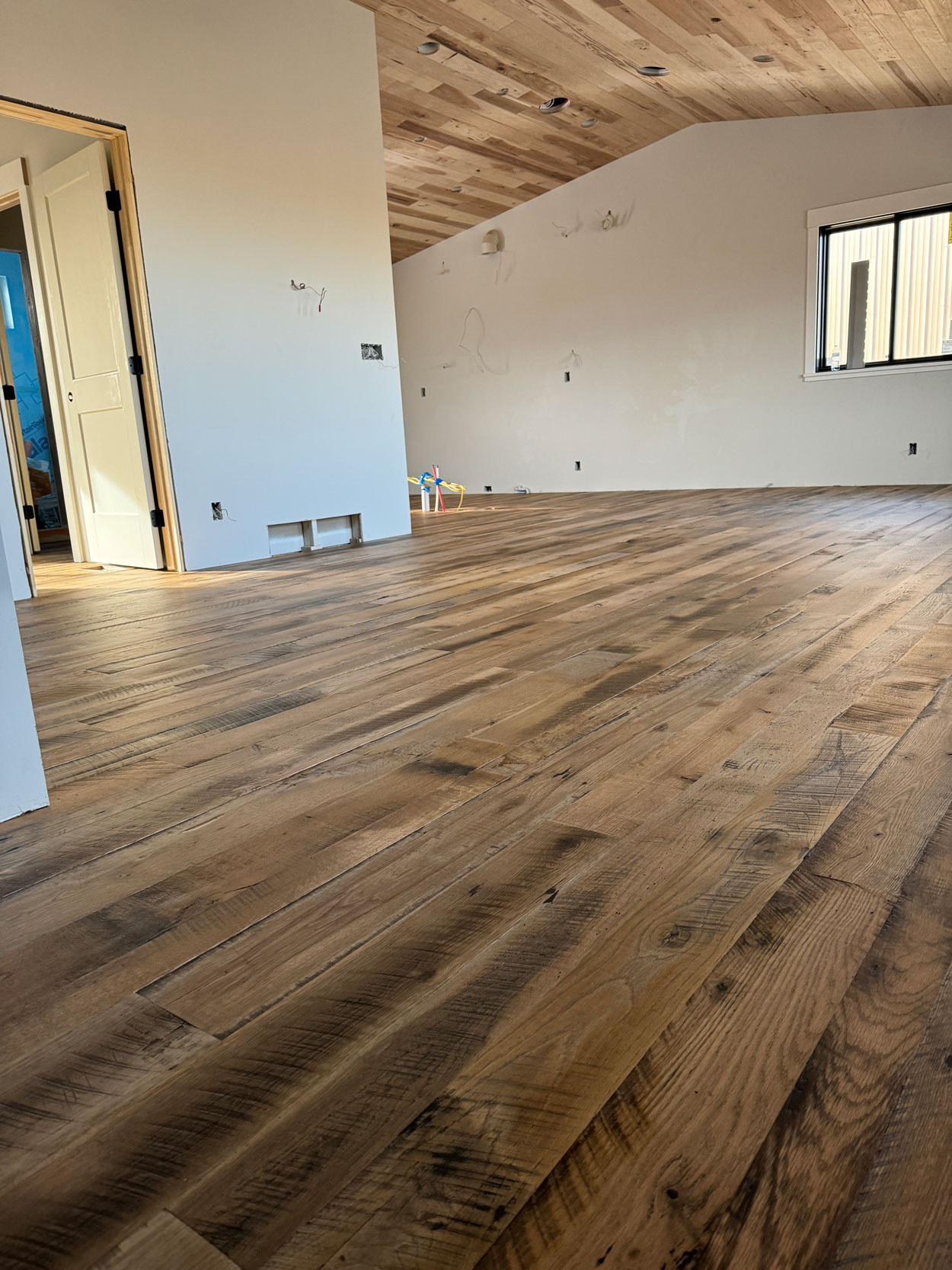 Discover the essential steps and expert tips for restoring antique hardwood floors to their former glory.
Discover the essential steps and expert tips for restoring antique hardwood floors to their former glory.
